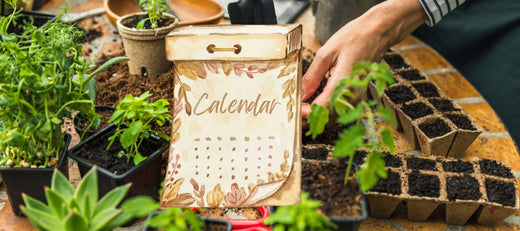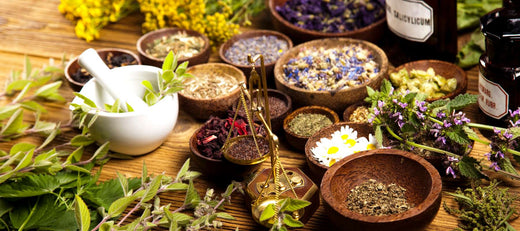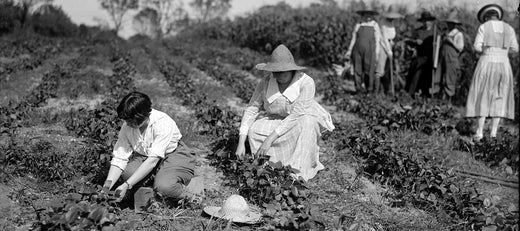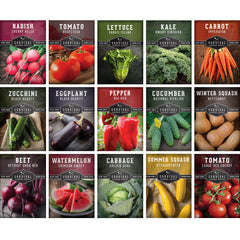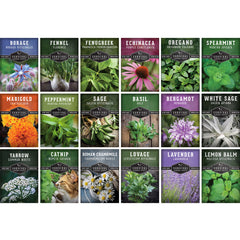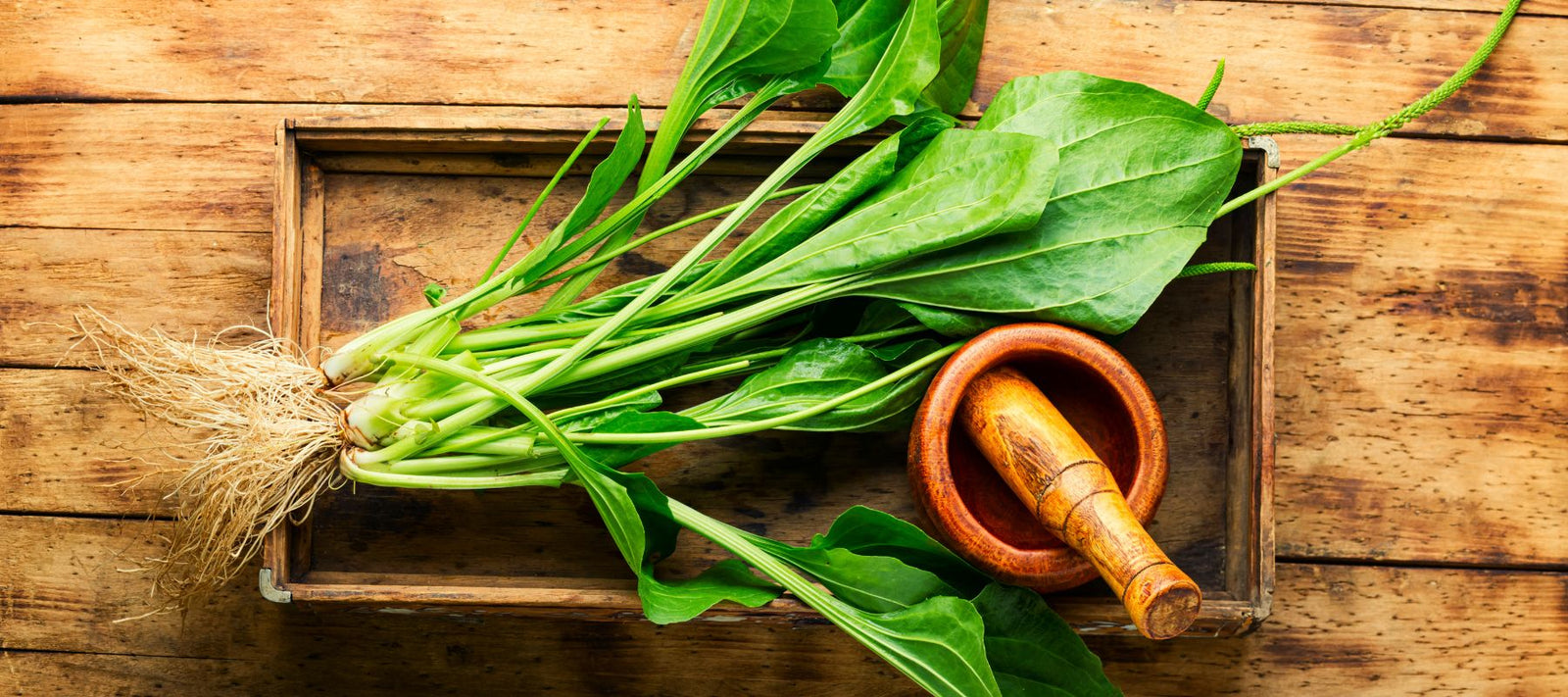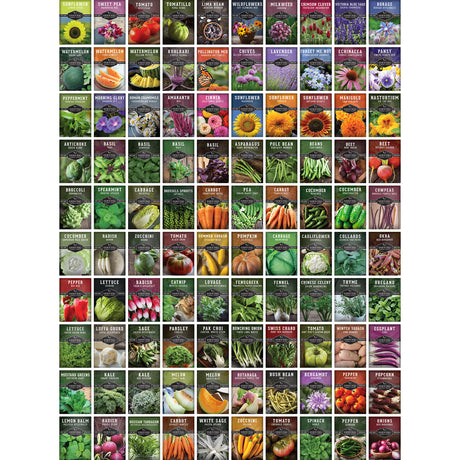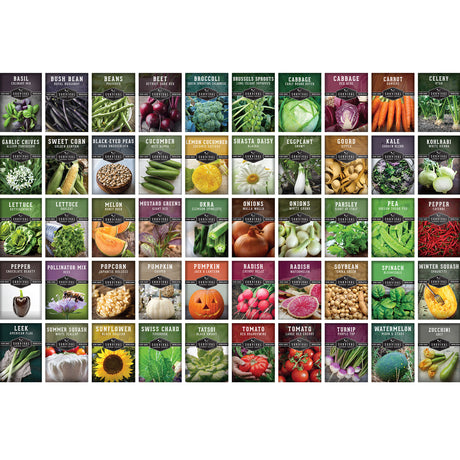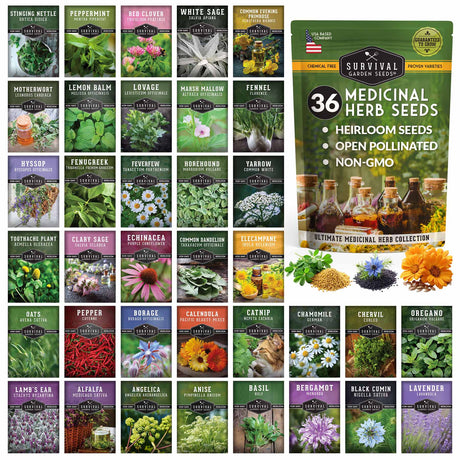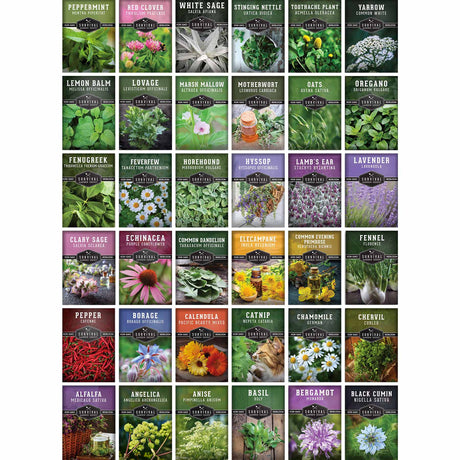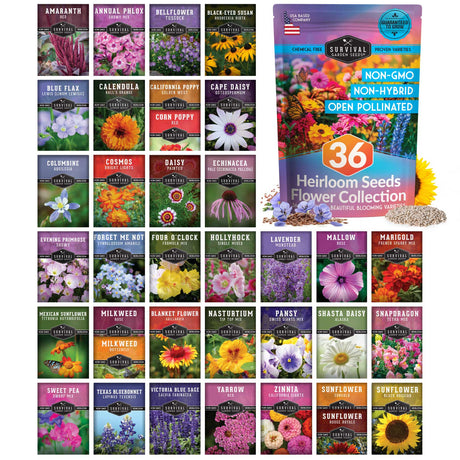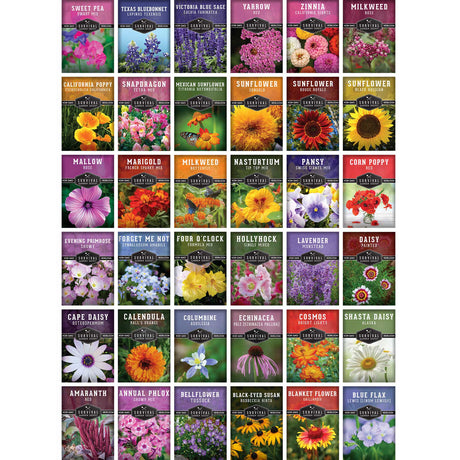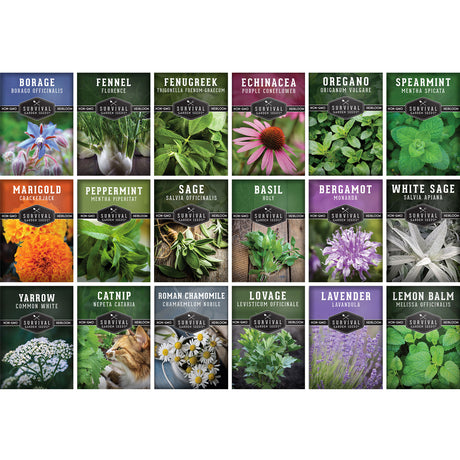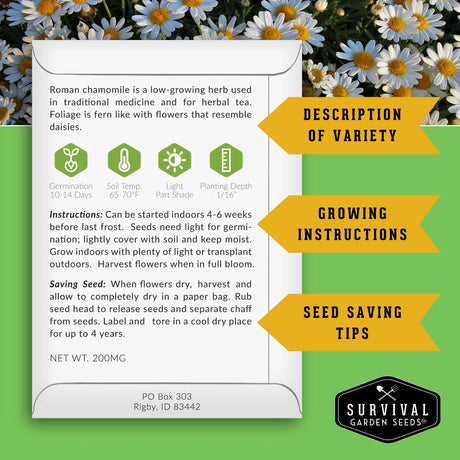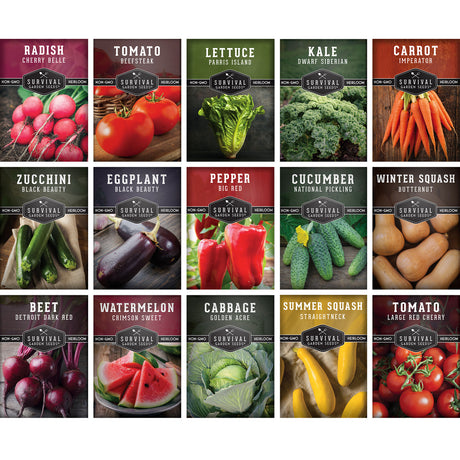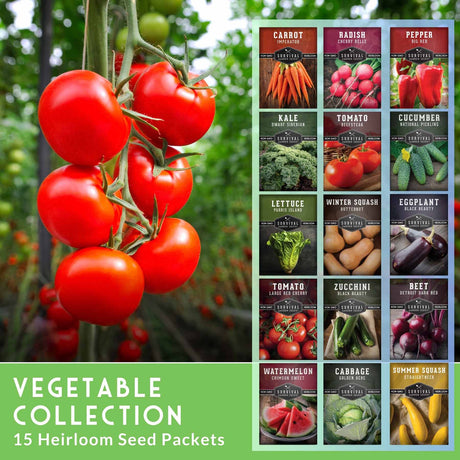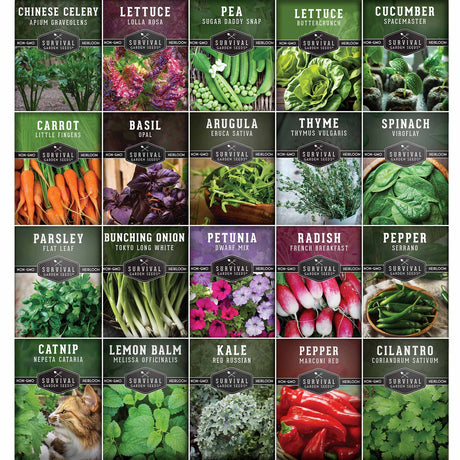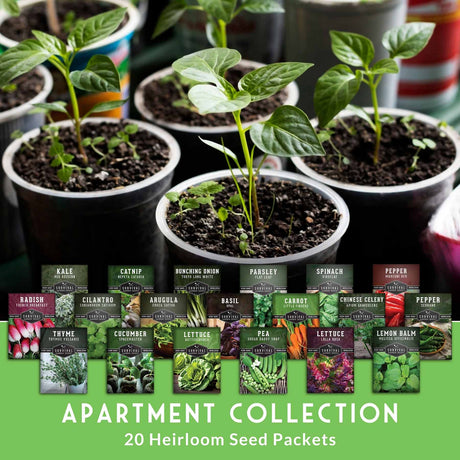At Survival Garden Seeds, our mission has always been to help our customers be more self-sufficient by providing them with the seeds they need to grow healthy plants that will sustain their families. In 2024, one of our main focuses has been expanding our inventory of medicinal plant seeds. Among these are seeds for plants that many would consider weeds. The plants most modern gardeners have been taught need to be removed from our gardens have been used for centuries to help and heal.
Before we started cultivating the soil to plant crops purposefully, we gathered from Mother Nature’s garden. In a previous blog post, we discussed what we can learn from weeds that will help us be more effective gardeners. Now, let’s take a look at how we can use some of these weeds to create natural remedies and boost our nutrition.
Clover
Clover has many uses. It is an excellent cover crop that will restore nitrogen to your soil. Its blooms attract pollinators, like bees that make healthy clover honey. It is also completely edible and can be eaten like a salad green or used to make tea.
Red clover (Trifolium pratense) is the type of clover that has been most researched for human use and contains several vitamins and minerals including thiamine, niacin, calcium, chromium, magnesium, phosphorus, potassium, and vitamin C. Dutch White clover (Trifolium repens) is rich in vitamins A and C. Clover is rich in isoflavones that can have anti-inflammatory and antioxidant properties as well as phytoestrogens which can help with menopausal symptoms.
Dandelion
We’ve discussed the many benefits of the common dandelion (Taraxacum officinale) in a previous blog post. This plant is entirely edible from root to flower and filled with vitamins and minerals. Medicinally it can be used as a gentle diuretic and anti-inflammatory.
The leaves can be used as salad greens, the leaves and flowers can be used to make tea, and the roots can be dried and ground to be used as a caffeine-free coffee alternative.
Grasses
Although not necessarily considered weeds, gardeners tend to remove grasses from their garden soil, but they have important uses as well. In particular, oats and alfalfa are prized for their medicinal properties.
Oats

You may have heard of milky oats. Milky oat tops come from harvesting the immature common oat (Avena sativa) seeds. These seeds are often combined with alcohol or vinegar that will extract the minerals and nutrients to create a tincture that can be used as a tonic for the nervous system. Historically milky oats tincture has been used to help with sleeplessness, calm stress, help with menopausal mood swings, and boost the immune system. The fruiting tops and stalks (known as oat straw) are rich in iron, calcium, magnesium, phosphorus, chromium, and vitamins A, B, and C.
Alfalfa
The health benefits of alfalfa (Medicago sativa) are many. It is packed with nutrition and one serving can provide 13% of your recommended daily allowance of vitamin K, an essential nutrient for blood clotting. It contains antioxidants that can help lower the risk of heart disease, diabetes, and cancer. Alfalfa is rich in fiber that can help maintain steady blood sugar and contains compounds that help lower LDL cholesterol. It is also a natural diuretic.
We usually consume alfalfa as sprouts, but dried alfalfa can be taken as a supplement or brewed into a tea.
Plantain
Common plantain (Plantago major), or broadleaf plantain is a weed you will probably find somewhere in your yard. It has been used for centuries for a broad range of medicinal purposes. If harvesting from your yard or garden, make sure they have not been treated with any type of pesticide.
Plantain leaves are high in fiber and psyllium which can aid in digestion. They also contain anti-microbial and anti-inflammatory compounds that can aid in wound healing. Both the leaves and seeds of plantain are edible and can be eaten raw or cooked. Plantain can be used topically by drying leaves and infusing them into an oil, lotion, or ointment.
Purslane
Purslane (Portulaca oleacera) is a succulent plant that grows all over the world. It is considered a common culinary herb in Central Europe, Asia, and the Mediterranean region. It has a slightly bitter, salty taste similar to spinach and can be used in much the same way. Recent research shows that purslane has a better nutritional quality than many major cultivated vegetables. It’s considered a superfood because of its high nutritive and antioxidant properties.Medicinally it has been used for the treatment of burns, headaches, arthritis, gastrointestinal ailments, cough, and so much more. Purslane is an excellent source of omega-3 fatty acids, particularly alpha-linolenic acid. Our bodies do not synthesize omega-3 fatty acids, so we must consume them to help in human growth and prevent disease.
Stinging Nettle
Stinging nettle (Urtica dioica) is another weed we have discussed in depth in another blog post. It is a flowering perennial plant known for its leaves covered in tiny stinging hairs that can cause skin irritation, but those leaves are filled with nutrition and healthy compounds.
Stinging nettle has been used as an herbal medicine to treat muscle and joint pain, eczema, arthritis, gout, and anemia. It can help stabilize blood sugar, lower blood pressure, and prevent hair loss. For centuries it has been used to help support milk supply in lactating women among many other uses. It is mostly used in the form of tea made from the leaves.
As with any natural remedy, be sure to check with your doctor prior to using any of these plants, especially if you are on prescribed medications. As previously mentioned, avoid harvesting any weeds that have any chance of having been sprayed with chemicals. We offer seeds for all of these plants so that you can grow them safely and organically in your garden or in containers.
Think twice the next time you go to remove an unwanted plant from your garden. It might be something that is nutritious and useful. Expand your garden with natural remedies that are so easy to grow, they grow like weeds!


